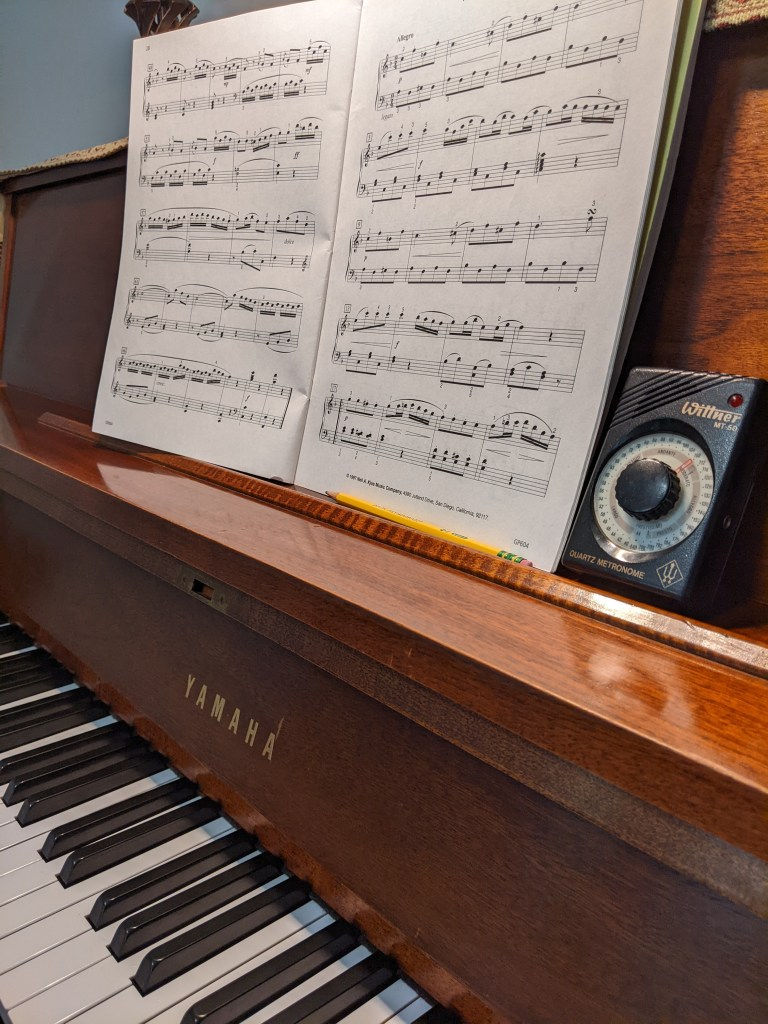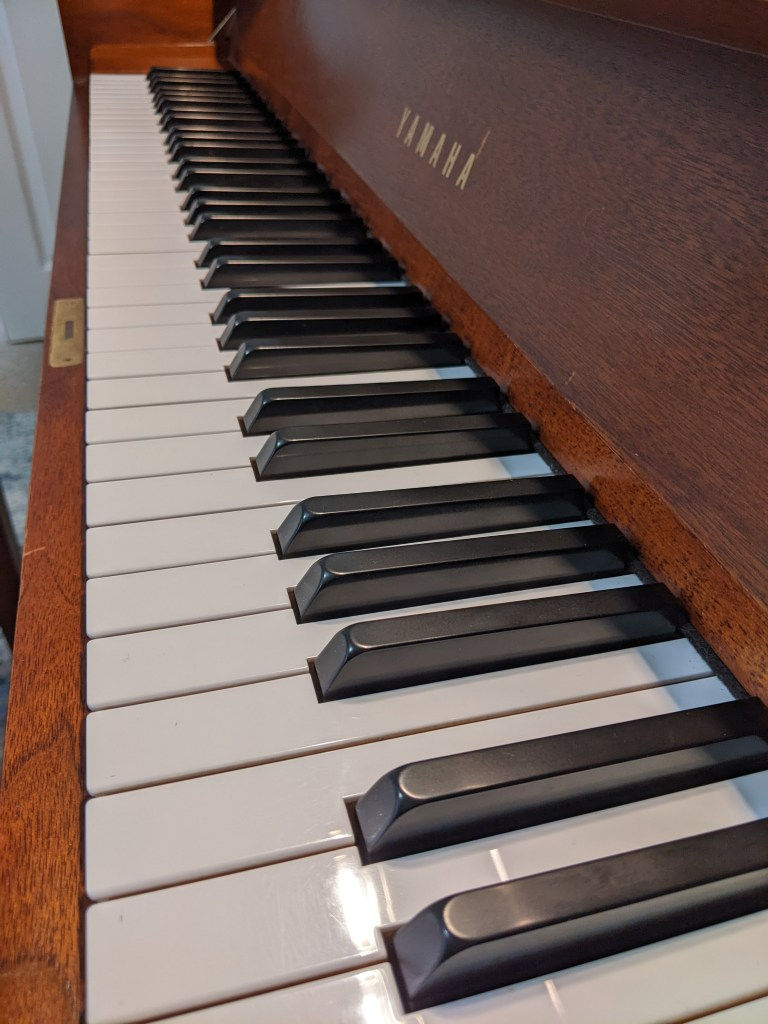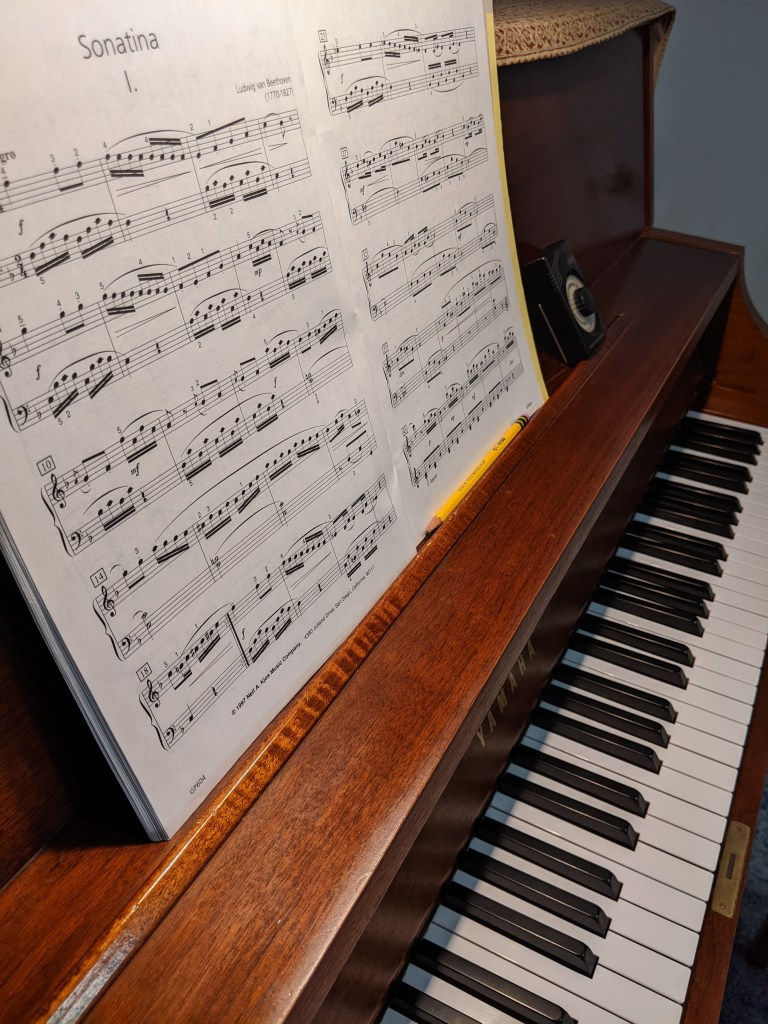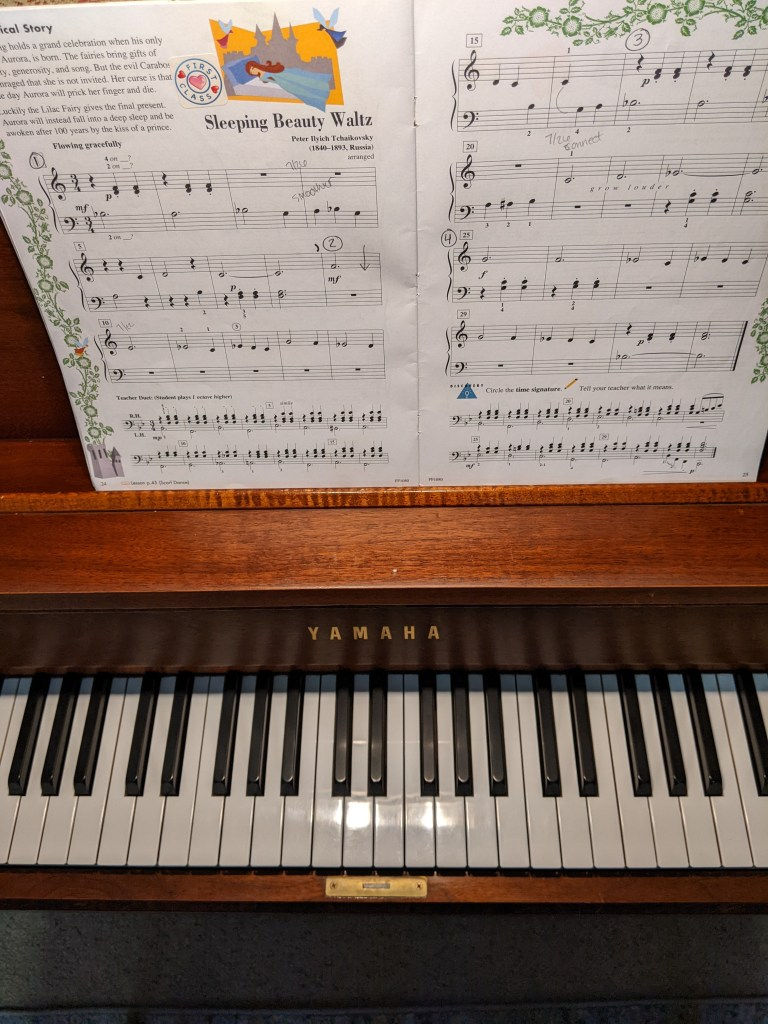7 Top Proven Piano Practice Tips
- Catherine Sipher

- Oct 14, 2022
- 5 min read
Updated: Feb 25, 2023
Are you looking for proven piano practice tips to make the most of your practice time?
If so, this post is for you!
“Practice makes perfect.” So they say. (Whoever “they” is.)
It’s true, if you want to learn how to play the piano you will have to practice. There’s no way around it.
But did you know, there are ways to practice that are more effective than others? When you practice using these 7 top proven piano practice tips, you will master the art of playing the piano quickly and with ease.
The 5-Minute Practice Challenge
My college professor drove this point home during a group masterclass on the art of practicing. After a discussion on different proven piano practice tips, he engaged each of us in a 5-minute practice challenge. During this challenge, we had 5 minutes to practice a brand new piece of repertoire in front of our peers. Feeling the pressure to please the teacher and look good in front of my peers, I focused intensely, making good use of each second and using all the discussed techniques. The results were phenomenal. I had never learned a passage of music so quickly or accurately before.
I learned a powerful lesson that day. A focused five-minute practice session can be highly effective if that time is utilized purposefully and thoughtfully.
The methods I learned in that masterclass I now teach to my students.
In reality, the majority of musical growth occurs between lessons not during lessons. I teach each lesson with the goal of preparing my students to know how to practice at home. I want each student to confidently approach their practice sessions knowing they will be capable of reaching their specific musical goals.

1. Practice Slowly
Looking at a new piece of music can feel intimidating at times. New melodies, harmonies, rhythms, and articulations leap from the page. Perhaps you see more black notes than white space or you can't quite figure out which hand will play which notes. Yet, the piece of music is calling to you (or your teacher assigned it to you), so the music must be learned. What is one to do? Panic? Nope! Dig in, slowly!
Most likely, you know how to find and play each note on the page. You just don't yet know how to play them in that particular order or notated tempo. That's okay! You will get there, as long as you start slowly.
Remember, what you repeat you learn. Your mind and fingers will latch onto the way you most practice a passage. If you want to play it correctly, you must practice the passage that way from the very first reading.
How does one do that? Again, my solution... practice slowly. By practicing slowly, your mind and fingers have time to communicate, ensuring every note and rhythm finds its proper placement. Once you have the basics in place and the beginnings of finger memory established you can gradually increase the tempo.
I know playing slow can feel tedious at times, but it truly pays off!
Remember: It takes more time to unlearn incorrectly learned music than it takes to learn music correctly from the beginning.

2. Practice in Small Segments
Allow your brain time to observe, remember, and correct any mistakes quickly by practicing in small musical phrases. As tempting as it is to try to sight-read through an entire piece of music or to play a piece in its entirety repetitively, you will eventually find yourself frustrated over the lack of progress you are making.
Since learning this tip, I rarely sight-read new repertoire in its entirety. Instead, I jump to the "woodshedding" portion of practicing, repeating shorter passages of music slowly until it feels comfortable in my fingers. Some days I still only learn a few beats of music at a time. I'm okay with that because I know I learned those few beats correctly.
What does this look like for a beginner student? If you are learning a 32-measure song, practice the first 2-4 measures repetitively until you have mastered those measures. This might consume an entire day’s practice session. The next time you practice, first review those first few measures. Then devote your remaining time to learning the next few measures.
Remember: By practicing in smaller sections, you will learn the piece of music quicker than if you played the entire song each time.

3. Ask Yourself Questions
Observe yourself while you practice by asking yourself questions as you play. Listen to your playing. Get curious. Ask yourself the following:
Does the passage sound correct? If not, why?
What notes did I miss? What should I have played instead?
How will I move my fingers and hands differently to reach the correct notes?
Did I master the dynamics and rhythms?
Did I play the music expressively?
Bonus Tip: Record portions of your practice time. Listen to the recording. Observe what you hear. Then make the needed changes.

4. Try the “Stop Practice” Technique
If one note repeatedly gives you trouble, practice stopping ON that specific note. It's challenging to do, but by stopping on the offending note, you train your fingers to find those notes accurately the first time.
If you continue to miss the note, return to the third tip. Ask yourself questions. Observe how your hands moved incorrectly and how they need to move to reach the note. Notice the intervals between the notes. Name the note names out loud. Adjust your fingerings.
Allow time (perhaps days of practice) and slow repetition to work its magic on the passage with this proven piano practice tip.
Bonus Tip: Practice this way until muscle memory takes over and the thinking mind can rest.
5. Try the “Add a Note” Technique
If the challenging passage has more than one tricky spot, gradually increase the length of the passage one note at a time. Essentially, use the "Stop Practice" technique on every note in the passage until you can play the entire phrase fluidly.
This kind of practice can be exhausting. To prevent fatigue, plan out how many beats you want to learn in each practice session. An 8-beat-passage might take two to four days to learn depending on its difficulty and how much time you have to devote to practicing. Too much repetition, in one sitting, on any given passage will fatigue your mind and sap your energy, resulting in more errors than wins.
Bonus Tip: To avoid practice fatigue, take frequent mental breaks.

6. Practice in Sets of Five
It has been said, "Practice doesn't make perfect. Perfect practice makes perfect." It's true. If we want to learn to play something correctly, we have to play it more times correctly than wrong. With that in mind, challenge yourself to play your difficult passages five times in a row correctly.
Did you catch that? Five times in a row, not just five times! Doing so will increase your familiarity with the passage and build muscle memory.
Bonus Tip: Use counters to keep track of your repetitions.
Keep a stack of 5 objects near your piano. (These could be tiny toys, pencils, paperclips, erasers, etc.) To start, place all 5 objects on one side of your piano. Each time you play a passage correctly, move one item to the other side of the piano. Continue until all 5 items have been moved to the other side. If you make a mistake at any point, move all the pieces to your starting side and try again!

7. Rinse and Repeat
Apply all these practice techniques to every passage and piece of music you learn. These methods are simple but effective. I still use them in my personal piano practice all the time.
Bonus Tip: Combine high-quality practice time with high-quantity practice sessions for exponential growth!
If you would like personalized practice tips to help you reach your musical goals, contact me today. It would be my honor to help bring the joy of music into your heart and home through virtual personalized piano lessons!
Happy Music Making!




Comments